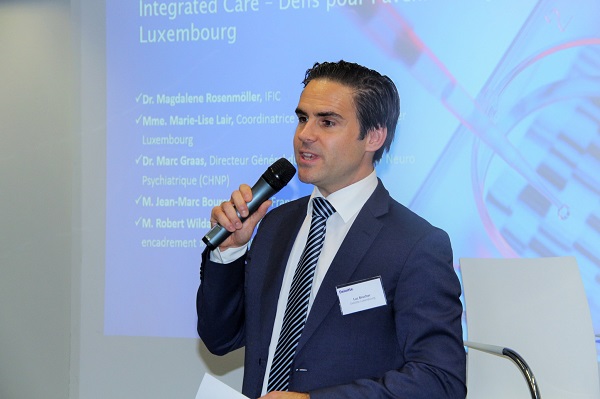
Deloitte Luxembourg recently organised a conference entitled “Integrated Care” in partnership with the Luxembourg Hospital Federation (FHL), at which Lydia Mutsch, Minister for Health and Equal Opportunities, was one of the speakers who shared their insights with more than 90 people from the healthcare sector.
At the fifth annual edition of the Deloitte Luxembourg Healthcare conference, professionals from the healthcare sector, the pharmaceutical industry, and a number of startups specialising in healthcare projects or products discussed the concept of Integrated Care.
Participants highlighted the fact that the healthcare system is undergoing fundamental changes, which will transform the way patient treatment, and care is viewed. Major socio-demographic, economic, social and technological changes are taking place, affecting the foundations of the healthcare system. Examples of this include increased life expectancy, higher average expenditure on healthcare, as well as the projected shortage of doctors and the hyper connectivity of society, which will inevitably influence the approach to healthcare.
Integrated Care as a factor contributing to an improved patient experience
The conference emphasised the full range of benefits of Integrated Care. “The need for a comprehensive healthcare cycle, better coordination, and ultimately, a more integrated approach when it comes to the delivery and management of healthcare are key components of Integrated Care. The primary goal is that the patient remains at the heart of all reflection, with an easy access to more effective and better quality healthcare when it comes to his or her specific needs,” explained Luc Brucher, Partner and Healthcare and Life Sciences Industry Leader at Deloitte Luxembourg. This patient-centered approach consists of a uniform and continuous cycle of delivering health services and medical care that are aimed at optimising the patient’s satisfaction levels and well-being.
An integrated approach reinforced by a number of success factors
Different approaches have been used in the provision of Integrated Care, but they all have one thing in common: they structure all levels of care around what is best for the patient.
“Although better integrated care offers real benefits to patients, most of the systems and stakeholders in the healthcare sector experience difficulties in applying this approach in a practical sense. However, organisations worldwide have succeeded in integrating care in an effective manner, drawing attention to a number of “best practice” approaches which can be used as a guideline for successful integrated care programmes,” noted Karine Pontet, Director at Deloitte Luxembourg.
According to what has emerged from the preliminary stages of assessing its feasibility and viability, a successful integrated care programme can only exist if a series of key factors are taken into account. These include patient responsibility and enlisting the support of family and friends, a clarification of the roles and responsibilities of healthcare teams and doctors, the setting up of IT infrastructure, establishing good governance, and defining performance indicators.
The conference ended with a presentation featuring various innovative ideas, services, and products given by five start-ups discovered at the Mind & Market forum. IITM S.A., Neveo, OSIMIS, SNT, and InClusive by DZIGN had the opportunity to present their respective projects linked to “Integrated Care.”








